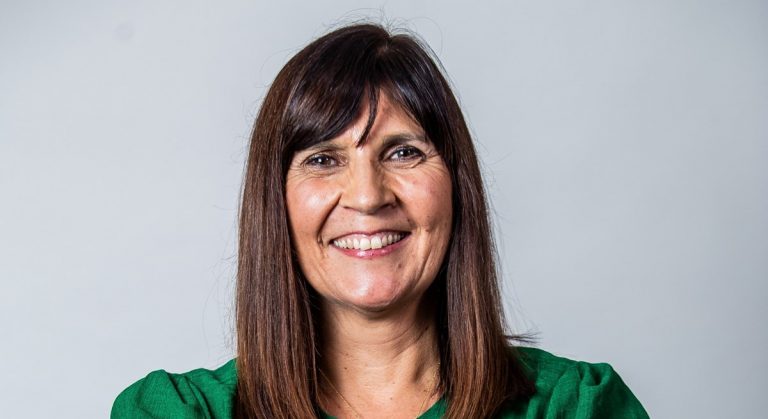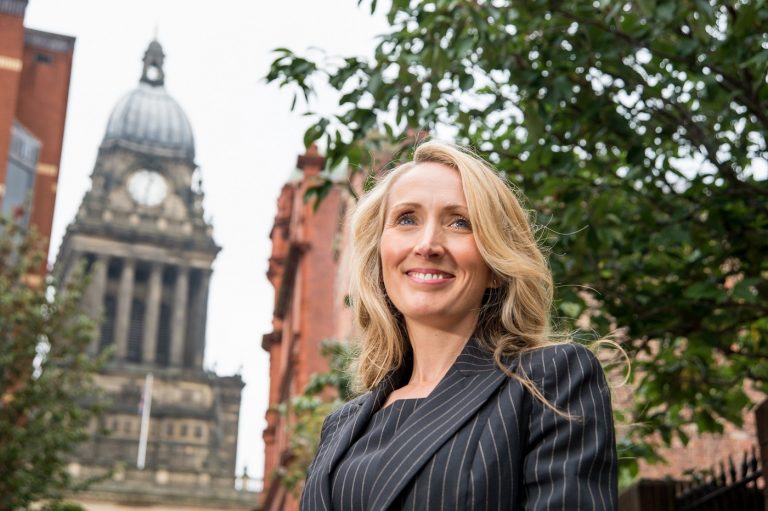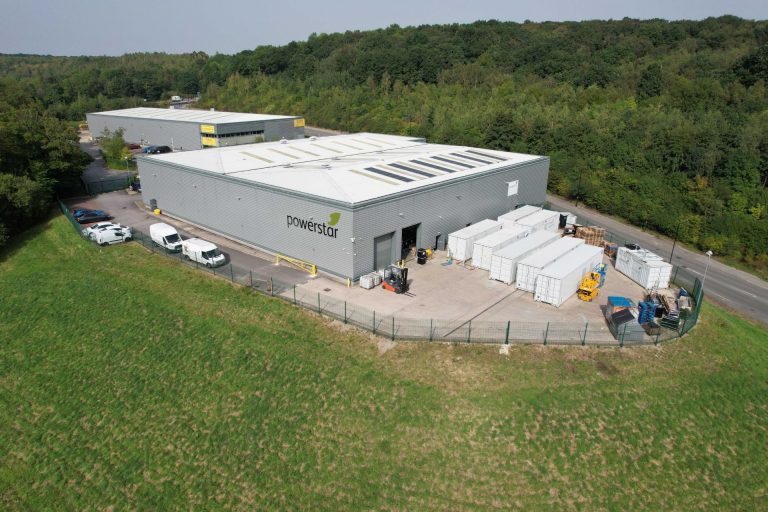Uniper and Phillips 66 Limited have agreed to work together on a project to produce electrolytic hydrogen at its Killingholme site by 2029.
The Humber H2ub® (Green) project includes plans for an initial electrolytic hydrogen production capacity of up to 120 MW, with the potential for future expansion. The green hydrogen production facility would be developed as part of Uniper’s wider aspirations for the Killingholme Energy Transformation Hub. Uniper and Phillips 66 Limited have signed a collaboration agreement to work together towards a supply of green hydrogen from the Humber H2ub® (Green) project to Phillips 66 Limited’s Humber Refinery from 2029. The hydrogen would be used to replace refinery fuel gas in industrial-scale fired heaters, as part of Phillips 66 Limited’s plans to reduce the Humber Refinery’s scope 1 operational emissions. Hydrogen production is a key pillar of Uniper’s strategy, and our aim is to build more than 1 GW of electrolyser capacity across the business by 2030. The Humber H2ub® (Green) project development and the supply agreement with Phillips 66 Limited are subject to financial investment approval from Uniper’s and Phillips 66 Limited’s management, and several pre-conditions that would have to be satisfied; including securing the necessary planning consents and environmental permit, agreement on terms for the hydrogen offtake and a Low Carbon Hydrogen Agreement with the UK Government. Guy Phillips, Team Lead, Business Development Hydrogen, UK for Uniper, said: “The Humber H2ub® (Green) project is a key part of Uniper’s hydrogen ambitions in the UK and we’re pleased to be collaborating on it with Phillips 66 Limited. The Humber region is recognised as the UK’s most carbon intensive industrial region and hydrogen will be vital in decarbonising and securing the region’s economy. The Humber H2ub® (Green) project could make an important contribution to kick starting the hydrogen economy in the Humber region. “Our Killingholme site is ideally placed with excellent utilities infrastructure. It has the potential to support the UK’s hydrogen and decarbonisation ambitions, creating new high-skilled employment opportunities and ensuring the site continues to make a valuable contribution to the regional economy.” Duncan Hammond, Humber’s Decarbonisation Projects Manager at Phillips 66 Limited, shared: “We are excited to collaborate with Uniper on their low carbon hydrogen project. Hydrogen refuelling will be a big step in lowering the refinery’s emissions as we evolve with the energy transition. Energy security is vital for the UK.Utilising technologies such as low carbon hydrogen produced by electrolysis and also carbon capture will enable us to continue to produce essential products for the transport sector and supply chain, some of which are used in the production of electric vehicle batteries, wind turbine blades, pharmaceuticals and much more. We believe hydrogen will attract new industry, protect jobs, and develop the local economy.”CPI reduction should be built on to get economy back into gear, says FSB
Full planning application submitted for new stadium for Sheffield FC and Sheffield Eagles Rugby League Club
About turn after 24 hours: HMRC halts plans for on line DIY tax advice
Leeds-based Endless completes sale of educational resources supplier to leader in European B2B ecommerce
Nicholas Associates Group steps up to support local communities with ’50 for £50 Challenge’
Nicholas Associates Group (NAG), a provider of workforce solutions, has announced its recent initiative to support local community food banks through the ’50 for £50 Challenge’.
Throughout February, the company challenged its teams across the UK to walk 50 miles in return for a donation from NAG to enable the team to buy £50 of groceries for a local food bank. Sixteen teams took part, collectively raising £800.
In Sheffield, three teams completed the challenge from the NAG head office in Rotherham and £150 in groceries was delivered to the Archer Project, which helps homeless and vulnerable people.
NAG Group CEO, Paul Smith said: “Community support has always been a core value at Nicholas Associates Group, and we are constantly seeking innovative ways to give back.”
He continued: “The ’50 for £50 Challenge’ provided an excellent opportunity for our teams to come together, not only to support local food banks but also to prioritise their own wellness by getting outdoors, engaging in physical activity, and fostering meaningful connections with their colleagues.”
The challenge received an overwhelmingly positive response from employees across the company. Teams enthusiastically embraced the opportunity to make a difference in their communities while also prioritising their own well-being.
Paul emphasised: “This is just the beginning of our commitment to community engagement. We are excited to introduce our latest initiative, the ‘March on in March’ challenge.
“Building on the success of our ’50 for £50′ challenge, teams will continue to walk for a cause. For every 10 miles exceeded beyond the initial 50, an additional £10 will be donated to support local communities. We’re eager to see the impact we can make together.”
Bird flu controls strengthened with new poultry sector registration rules
Inflation comes in lower than expected for February
Alpesh Paleja, Lead Economist, CBI, said: “Inflation is heading in the right direction, and should fall below the Bank of England’s 2% target sometime in the Spring. However, the path beyond this is likely to be bumpy: shifting base effects mean that it will likely rise back above 2% later in the year, before settling down more sustainably.
“While the Bank of England are likely to look through these ups and downs, they will still want to see more definitive movement on domestic price pressures before committing to cutting interest rates.”
HMRC adopts DIY measures with revision to service access
- between April and September, the Self Assessment helpline will be closed and customers will be directed to self-serve through HMRC’s highly-rated online services
- between October and March the Self Assessment helpline will be open to deal with priority queries – customers with queries that can be quickly and easily resolved online will be directed to HMRC’s online services
- the VAT helpline will be open for five days every month ahead of the deadline for filing VAT returns – outside of this time, customers will be directed to use HMRC’s online services
- the PAYE helpline will no longer take calls from customers relating to refunds – customers will be directed to use HMRC’s online services
- HMRC advisers will continue to always be available during normal office opening hours to support customers who cannot use online services or who have health or personal circumstances that mean they need extra support
- all other helplines will continue to operate as they do currently
“We must maximise every pound of taxpayers‘ money. Embracing online self-service allows us to help more customers and improve our customer service levels without spending additional public money.”
Northern Trains to advertise 300 jobs in the coming months
Northern Trains is looking to recruit more than 300 inexperienced drivers and conductors across the North of England this year including in Hull, Leeds, York, and Sheffield.
The train operator says the roles are part of a normal, on-going process to recruit as and when existing staff members retire, earn promotions or join another company.
It is looking to hire 108 train drivers and 198 conductors, and actively encouraging people with no rail industry experience to apply.
New recruits will have to complete paid apprenticeships at one of Northern’s training academies in Leeds or Manchester.
The train driver roles, which will be advertised in the coming months come with a starting salary of £23,000 a year rising to £54,500 after the recruits complete a 64-week training course.
The conductor roles set to be advertised in Barrow-in-Furness, Blackburn, Blackpool, Buxton, Leeds, Manchester, Liverpool, Newcastle Skipton, Workington and York come with salaries starting of £22,000, rising to £29,000 once they complete a 16-week training course.
A small number of roles open to qualified drivers will also be available in Darlington, Leeds, Manchester and Newcastle.
Tricia Williams, COO at Northern, said: “We have a range of rewarding roles for anyone who wants to become part of a dedicated team that runs more than 2,500 services a day to over 500 destinations.
“We are looking for customer-focused people with excellent communication skills who thrive in a dynamic environment and may not have considered a career in rail before. Successful applicants will demonstrate a high level of responsibility, a strong work ethic and a commitment to maintaining safety standards.”
Helen promoted to estate agency’s sales manager role in her home town
Kirkstall Brewery to make The Tetley a hub for great beer
Government steps in with tighter regulation of the business of running football’s elite clubs
“The new Independent Regulator of Football will set the game on a sustainable footing, strengthening clubs and the entire football pyramid for generations.”
Chief Executive of the Football Supporters Association Kevin Miles said: “The FSA warmly welcomes the tabling of the Football Governance Bill arising from the 2021 Fan Led Review, and particularly its central proposal to introduce statutory independent regulation of the game.“The regulator provides a means to intervene and stop clubs being run into the ground, protect the heritage of clubs, give supporters a much bigger voice in the running of the game, and prevent any chance of domestic clubs joining a breakaway European Super League.
“The regulator must be given the power to impose a financial settlement in the interests of the sustainability of the game as a whole. It is far too important to be left to the squabbling between the vested interests of the richest club owners.”
The Sheffield College extends footprint at Pennine Five
Keyland appoints land & planning manager
Keyland Developments Ltd, the property trading arm of Kelda Group and sister-company to Yorkshire Water, has appointed Mike Powell as land & planning manager to further strengthen its Land and Planning Team.
Mike joins from Peacock and Smith where he was a senior associate.
Mike joins the team with a focus on further growing Keyland’s successful Planning Promotional Agreements (PPA) initiative, which is designed to enable private landowners to maximise the development potential from their land risk free.
Additionally, Mike will be working to unlock public sector opportunities via the company’s role as the only land broker on Land Solve 2, the forward-thinking public sector land delivery framework.
Mike brings a wealth of strategic expertise from both the private and public sectors, having started his career in local government in Northumberland, before moving to private practice in Yorkshire with roles across local and national planning consultancies. Prior to Peacock and Smith, Mike worked as senior planner at Hallam Land Management Ltd.
Luke Axe, land & planning director, Keyland Developments Ltd, said: “We are delighted to bring Mike into the Keyland team at an exciting time for the business.
“Mike’s extensive experience in the industry, and in particular his strong track record of strategic land promotion, adds even greater depth to our Land & Planning Team at a time when we are rapidly growing our PPA offer, as well as seeking to unlock public sector opportunities.”
Mike Powell said: “I am looking forward to supporting Keyland’s growth as a leading land promoter for both private and public sector clients. I am excited to use my skills and experience to help Keyland deliver its innovative Six Capitals approach to land promotion on some of the largest and most complex commercial and residential opportunities across the region.”
Yorkshire and the Humber achieves lowest level of insolvency-related activity in England in February
Yorkshire and the Humber put in a stalwart performance in February recording the lowest level of insolvency-related activity of all the English regions since the previous month according to the latest research from the UK’s insolvency and restructuring trade body, R3.
Last month, insolvency-related activity affected 263 businesses in Yorkshire and the Humber, up from 236 in January. This 11.4% rise was the second lowest seen across all 12 nations and regions, with only Scotland outperforming the region with a 7.5% month-on-month rise.
The research from R3, which is based on an analysis of data provided by CreditSafe, also showed that the South West with a 15.7% increase in this type of activity (which includes liquidator and administrator appointments and creditors’ meetings) and the North East (up by 19.4%) performed relatively strongly in February compared with the previous month.
Looking at month-on-month changes to the number of start-ups, another indicator of economic health, the picture in Yorkshire and the Humber was less encouraging with the region seeing no increase in the level of new businesses since January.
In February, there were 5,386 new businesses in the region compared with 5,405 the previous month. However, only Scotland put in a stronger performance (up by 5.6%).
“With the news last month that the UK economy had technically slipped into recession in the last quarter of 2023, potentially just months ahead of a general election, there are very real worries that we will only see sluggish growth at best this year,” explains Eleanor Temple, chair of R3 in Yorkshire and a barrister at Kings Chambers in Leeds.
“A number of factors, such as the curb in consumer spending and the doctors’ strikes, are continuing to act as a drug on growth, and so prospects are far from rosy.
“In this difficult climate it is positive to see our region performing relatively well last month with levels of insolvency-related activity here among the lowest across the UK compared with January. However, the low levels of start-ups in February across the majority of regions and nations is a cause for concern, again revealing poor business confidence.
“While some commentators are claiming that the economy has now ‘turned the corner’, with an imminent interest rate cut unlikely, there may well still be tough times ahead for many businesses. As ever, it’s vital that directors keep a sharp eye on their finances and seek professional advice as early as possible to avoid problems from spiralling out of control.”
Historic Hull firm acquired by marine fuel specialists
Hopkins Solicitors expands their legal support into Derbyshire
Late payments cause fears of reduced growth for SMEs, says FSB
South Yorkshire industrial unit acquired by Network Space
Network Space Investments has acquired a manufacturing and distribution unit adjacent to junction 35 of the M1 near Sheffield for an undisclosed sum.
The 25-year sale and leaseback deal sees the investment company acquire a high specification, modern 27,452 sq ft unit. Green energy solutions manufacturer, Powerstar is the long-term occupier on an index-lined 25-year lease.
Network Space Investments is an active value-add investor with an established industrial portfolio of almost 1 million sq ft across the north of England.
Tom Dawson, Investment Director at Network Space, explains: “We remain a pro-active investor in the industrial market, where we see potential for capital and rental growth through strong occupational demand and pro-active asset management. Our focus is on good quality modern and sustainable real estate, particularly in established locations which offer market resilience.
“The acquisition helps Network Space bolster its single-let portfolio. This unit offers a prime location at the heart of the country, coupled with a long-term, strong covenant tenant operating in the vital and fast-growing renewable energy technology sector.”
Built in 2008 on a 1.4-acre site, the two-storey industrial unit with integral offices space has been occupied by Powerstar since 2012 and operates as its UK headquarters.
Network Space Investments were advised by Knight Frank and Taylor Rose. CBRE was responsible for the sale and leaseback on behalf of the occupier.
Nick Wales, Partner at Knight Frank, added: “This high-quality unit was identified as a perfect fit for Network Space Investments’ growing portfolio, with the acquisition underlining their conviction to the industrial sector.”






















